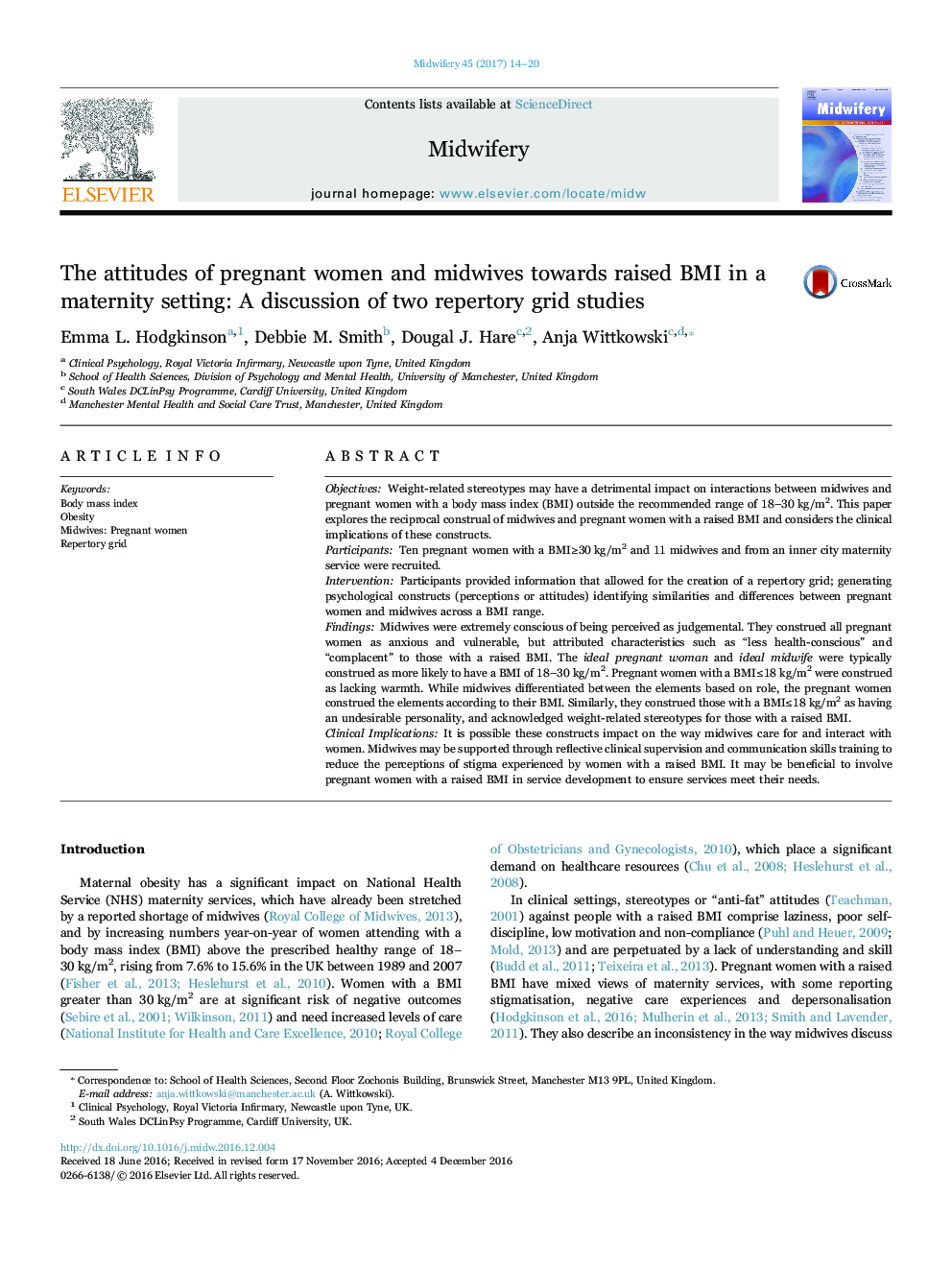| Article ID | Journal | Published Year | Pages | File Type |
|---|---|---|---|---|
| 5122398 | Midwifery | 2017 | 7 Pages |
â¢Repertory grid examined construals of pregnant women with a BMIâ¥30 kg/m2 and midwivesâ¢Midwives shared a culture of construing based on weight-related stereotypesâ¢Midwives' construal is strongly influenced by service pressures and NHS policiesâ¢Undesirable constructs may negatively affect the way midwives interact with womenâ¢Midwives held negative construal for women with a BMI of 18-30 kg/m2â¢Pregnant women with a raised BMI should be included in service development
ObjectivesWeight-related stereotypes may have a detrimental impact on interactions between midwives and pregnant women with a body mass index (BMI) outside the recommended range of 18-30 kg/m2. This paper explores the reciprocal construal of midwives and pregnant women with a raised BMI and considers the clinical implications of these constructs.ParticipantsTen pregnant women with a BMIâ¥30 kg/m2 and 11 midwives and from an inner city maternity service were recruited.InterventionParticipants provided information that allowed for the creation of a repertory grid; generating psychological constructs (perceptions or attitudes) identifying similarities and differences between pregnant women and midwives across a BMI range.FindingsMidwives were extremely conscious of being perceived as judgemental. They construed all pregnant women as anxious and vulnerable, but attributed characteristics such as “less health-conscious” and “complacent” to those with a raised BMI. The ideal pregnant woman and ideal midwife were typically construed as more likely to have a BMI of 18-30 kg/m2. Pregnant women with a BMIâ¤18 kg/m2 were construed as lacking warmth. While midwives differentiated between the elements based on role, the pregnant women construed the elements according to their BMI. Similarly, they construed those with a BMIâ¤18 kg/m2 as having an undesirable personality, and acknowledged weight-related stereotypes for those with a raised BMI.Clinical ImplicationsIt is possible these constructs impact on the way midwives care for and interact with women. Midwives may be supported through reflective clinical supervision and communication skills training to reduce the perceptions of stigma experienced by women with a raised BMI. It may be beneficial to involve pregnant women with a raised BMI in service development to ensure services meet their needs.
